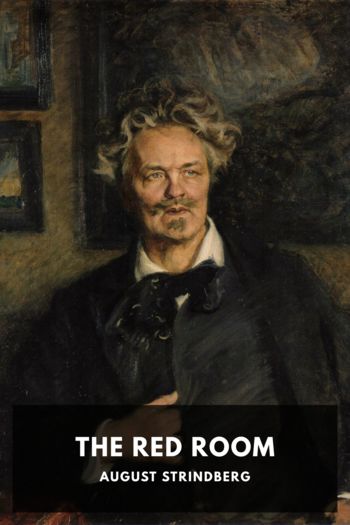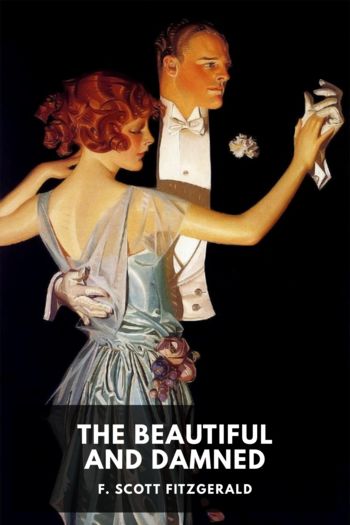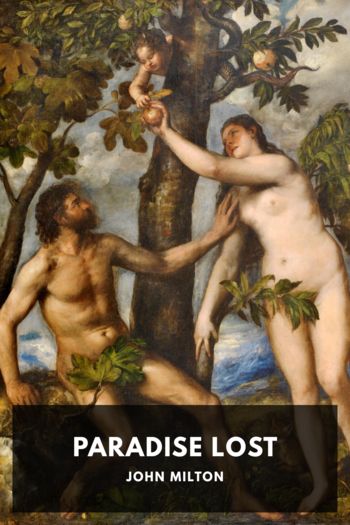The Inferno by August Strindberg (love novels in english .txt) 📕

- Author: August Strindberg
Book online «The Inferno by August Strindberg (love novels in english .txt) 📕». Author August Strindberg
In Saxen I pack my things and prepare for departure. I part with sorrow from my child, who has become so dear to me. The cruelty of the old woman, who has succeeded in separating me from wife and child, enrages me. Angrily I shake my fist against a painting of her which hangs over my bed, and utter an imprecation against her. Two hours later a terrible storm breaks over the village. One lightning flash succeeds another, the rain pours in torrents, the sky is pitch dark.
The next day I am in Klam, where the rose-coloured room awaits me. Over my aunt’s house there hangs a cloud in the shape of a dragon. They tell me that a house quite close by has been struck by lightning, and that the torrents of rain have injured haystacks and carried away bridges.
On the 10th of September a cyclone has devastated Paris, and that under most extraordinary circumstances. Without any warning, it suddenly rises behind St. Sulpice in the Jardin de Luxembourg, grazes the Théâtre du Châlet and the police station, and disappears behind the St. Louis hospital, after it has torn up iron gratings for fifty yards round. Regarding this cyclone and the one in the Jardin des Plantes, my theosophical friend asks me, “What is a cyclone? Is it an ebullition of hatred, the eruption of some passion, the effluence of some spirit?”
It must be a coincidence, or rather, more than a coincidence, that in a letter which crosses his, I have asked him as one initiated in the occult doctrines of the Hindus, “Can the philosophers of Hindustan cause cyclones?”
I began to suspect the adepts in magic of persecuting me on account of my gold-making or my obstinacy, and of wishing to bring me in complete subjection to their society. In the German Mythology of Rydberg and in Wärend och Widarne of Hilten-Cavallius, I had read that witches were in the habit of appearing in a storm or in short and violent gusts of wind. I mention this to show my mental condition before I fell in with Swedenborg’s teaching.
The sanctuary shines in white and rose, and the saint will soon join his disciple, who summons him from their common fatherland in order to revive the memory of the man who was more highly equipped with spiritual gifts than any born of woman in these modern times. France sent Anskar9 in the early middle ages to baptise Sweden; a thousand years later Sweden sent Swedenborg to re-baptise France by means of his disciple Saint-Martin. The Martinist orders, who know the role they have to play in the founding of a new France, will not undervalue the purport of these words, and still less the significance of the above-mentioned millennium.
VIII SwedenborgMy mother-in-law and my aunt completely resemble each other in character, tastes, and inclinations, and each sees in the other her counterpart. On the first evening of my stay I narrate to them my mysterious adventures, doubts, and sufferings. They both exclaim, with a certain look of satisfaction in their faces, “You are where we have already been.” Both starting from a neutral point of view as regards religion had begun to study occultism. From that moment onwards they suffered from sleepless nights, mysterious accidents accompanied by terrible fears, and at last, attacks of madness. The invisible furies pursue their prey up to the very gates of the city of refuge—religion. But before they have got so far the protecting angel reveals himself—and that is Swedenborg. The good ladies wrongly suppose that I have a thorough acquaintance with the writings of my fellow-countrymen. Astonished at my ignorance, they give me, with a certain air of reserve, however, an old volume in German, saying, “Take it, read, and don’t be afraid.”
“Afraid? Why should I be?” I answer.
Returning to the rose-coloured room, I open the book at haphazard and read. The reader may conceive my astonishment when my eyes fall on the description of one of Swedenborg’s hells which exactly reproduces the landscape of Klam, as I saw it in the zinc bath. The crater-shaped valley, the pine-crowned hill, the ravine with the stream, the heaps of dung, the pigsty—they are all there.
Hell? But I have been brought up in the profoundest contempt of the doctrine of hell, as one consigned to the rubbish-heap of outworn ideas. And yet I cannot deny the fact—and that is the novelty in this exposition of the doctrine of so-called eternal punishment—we are already in hell. Earth, earth is hell—the dungeon appointed by a superior power, in which I cannot move a step without injuring the happiness of others, and in which others cannot remain happy without hurting me. Thus Swedenborg depicts hell, and perhaps without knowing it, earthly life, at the same time.
The fire of hell is the wish to rise in the world; the powers awaken this wish and allow the damned souls to get all they want. But as soon as the goal is reached, and the wish is fulfilled, everything is seen to be worthless and the victory is null and void. Oh, vanity of vanities! Then, after the first disappointment, the powers rekindle the flame of ambition and desire; and satisfied greed and satiety are still a worse torment than unquenched appetite. Thus the Devil suffers everlasting punishment, for he gets all he wants at once, so that he cannot enjoy it.
When I compare the Swedenborgian hells with the punishments described in the German Mythology, I find an obvious likeness, but for me the bare fact that both these books have fallen into my hand exactly at the right moment is the essential point. I





Comments (0)